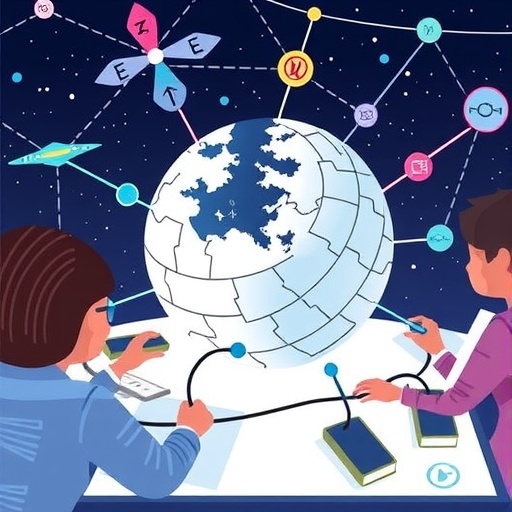In a world increasingly dominated by digital interactions, the concept of incorporating crowdsourced platforms into educational frameworks has gained traction. One particularly innovative approach that has recently emerged is the use of Wikipedia edit-a-thons as a cross-curricular STEM representation assignment. This initiative promotes not only the knowledge acquisition of various scientific topics but also sharpens critical thinking, collaboration, and digital literacy skills among students. Today, we delve into the intricacies of this novel educational strategy, examining the methods, results, and implications detailed in a groundbreaking study published by Seredinski et al. in “Discover Education.”
At its core, the Wikipedia edit-a-thon serves as a dynamic workshop where students actively contribute to the editing and enhancement of Wikipedia articles. The framework encourages students to engage rigorously with both the content they edit and the broader context of STEM subjects. By utilizing a platform familiar to many users, students can see the immediate impact of their contributions. This participation not only fosters a sense of ownership over the material but also fosters a genuine appreciation for collaborative knowledge building in the digital age.
As students embark on the process, they begin with learning essential editing skills that equip them for success in the vast landscape of online information. They are trained to assess sources critically, understand citation standards, and appreciate the importance of neutrality in content. As they navigate through these foundational editing principles, the students develop a multifaceted understanding of how knowledge is generated, contested, and refined in public forums like Wikipedia.
A critical component of this educational initiative involves the capacity for students to work within cross-disciplinary teams. Mathematics, science, engineering, and technology converge in this environment, where students with different academic backgrounds can bring their unique perspectives to the table. The collaboration not only enhances the quality of the content being published but also encourages a profound appreciation for interdisciplinary dialogue. The complex interrelations among scientific fields become apparent, enhancing student understanding with respect to real-world applications of their academic pursuits.
Moreover, incorporating a Wikipedia edit-a-thon into STEM curricula allows educators to emphasize the importance of representation and diversity in scientific discourse. Many underrepresented voices in STEM fields are often absent from online platforms, and by creating opportunities for students from diverse backgrounds to contribute, the initiative seeks to fill these gaps. Through the editing process, students are not just learning about existing knowledge but are actively reshaping narratives to reflect a wider array of experiences and insights.
The potential impact of this educational strategy stretches beyond the classroom as well. The skills acquired during these edit-a-thons are transferable, equipping students with a toolbox they can utilize throughout their academic and professional lives. As digital literacy becomes an essential competency in today’s job market, the ability to navigate online platforms responsibly and effectively becomes increasingly valuable. The edit-a-thon liberates students from passive consumption of information, positioning them as active contributors to the evolving digital knowledge landscape.
Throughout their study, Seredinski and colleagues observed significant outcomes arising from the implementation of Wikipedia edit-a-thons. Student engagement surged as they took ownership of the editing process, resulting in a noticeable uptick in both participation rates and the quality of contributions. The excitement observed during edit-a-thons showcases how a dynamic, hands-on approach stimulates student interest and fosters a culture of inquiry and collaboration within academic environments.
Moreover, students reflected deeply on their learning experiences, noting their newfound understanding of science and technology through the lens of public knowledge sharing. The paradox of rigorous academic work being distilled into accessible articles resonates with the democratizing mission of Wikipedia itself. This aligns well with the broader educational goals of fostering critical engagement and empowering students to challenge the status quo.
Organizational aspects of these initiatives also proved vital. Editors often supplied students with specific guidance, from topic selection to the nuances of editing itself. Supported by expert instructors who encourage creativity while imparting essential skills, students frequently engage in discussions that deepen their understanding of content integrity and the ethical considerations tied to digital information dissemination.
Furthermore, there’s an exciting ripple effect from these engagements. As students edit, they do not merely leave behind improved content; they also invite further scrutinization and updates from future editors. This self-sustaining model of knowledge expansion epitomizes the ideals underlying the open-source movement, fostering communities willing to collaborate over the perpetual quest for accuracy in scientific representation.
One cannot overlook the potential challenges associated with restructuring educational frameworks to accommodate such innovative practices




